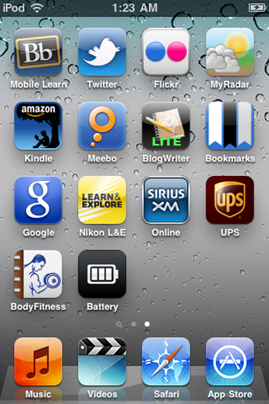I am coming to the end of my undergraduate career. In 2 weeks I will start the last 4 classes toward my major, completing my Bachelor of Science in Psychology degree. I have made a small change to my degree program that will result in me graduating in spring though, I have added a Sociology minor. I can not at this time rationally explain why I have done this, but honestly, its too late to back out now. I am rather glad I have another semester to go, as it gives me time to gather letters of recommendation, take the GRE and various other little tasks that need to be done.
I have several options for what to do after graduation in May.
- Master of Arts in Academic Psychology, East Carolina University – continuing on my same academic track as I am on now, except focusing more on theory than application, but would still be a good start for me. I would be qualified to teach in community college psychology programs as well as limited counseling roles. This program is completely online.
- Master of Arts in Clinical Psychology, UNC-Charlotte – this is my second choice option, but it is becoming my first choice. It would put me at the same school as Chris and put me back in an actual classroom. It is in some ways better than the options at ECU. I would be more directly in the program that I want to be in.
- Master of Arts in Library and Information Sciences, UNC-Greensboro – basically a masters degree for becoming a librarian. Its a relaxes sort of thing. The classes are a combination of on-campus at UNC-Charlotte as well as online.
- Master of Liberal Arts in Liberal Studies, UNC-Greensboro – this option is sort of a fall-back if I can’t get into the other programs. It is a curriculum of world cultures and a variety of artsy-fartsy (thanks Mrs. Hersey for that phrase) related programs.
- Bachelor of Fine Arts in Studio Art: Concentration Unknown, UNC-Charlotte – This option is one that I would love to consider more seriously than I currently feel that I can. To seriously think about my future career I have to move forward with options 1 or 2. This program will put be on track to a creative future, but I’m not sure its one that I can convince myself to live with. It would be a lot of work for not a lot of benefit in the end, but in some ways I wonder if I would be happier in this path. This program would also place me as on the same campus as Chris. This idea is quickly finding its way to the #3 spot and not #5.
There are so many factors to consider and I don’t really know where to begin. I know I have to make a decision soon, as graduation is in May and I need to be prepared for applying to the programs starting in January/February 2011. I want to do something that matters, but at the same time it has to be something I can stick with and something that ultimately will make me happy and perhaps reveal truly who I am.

